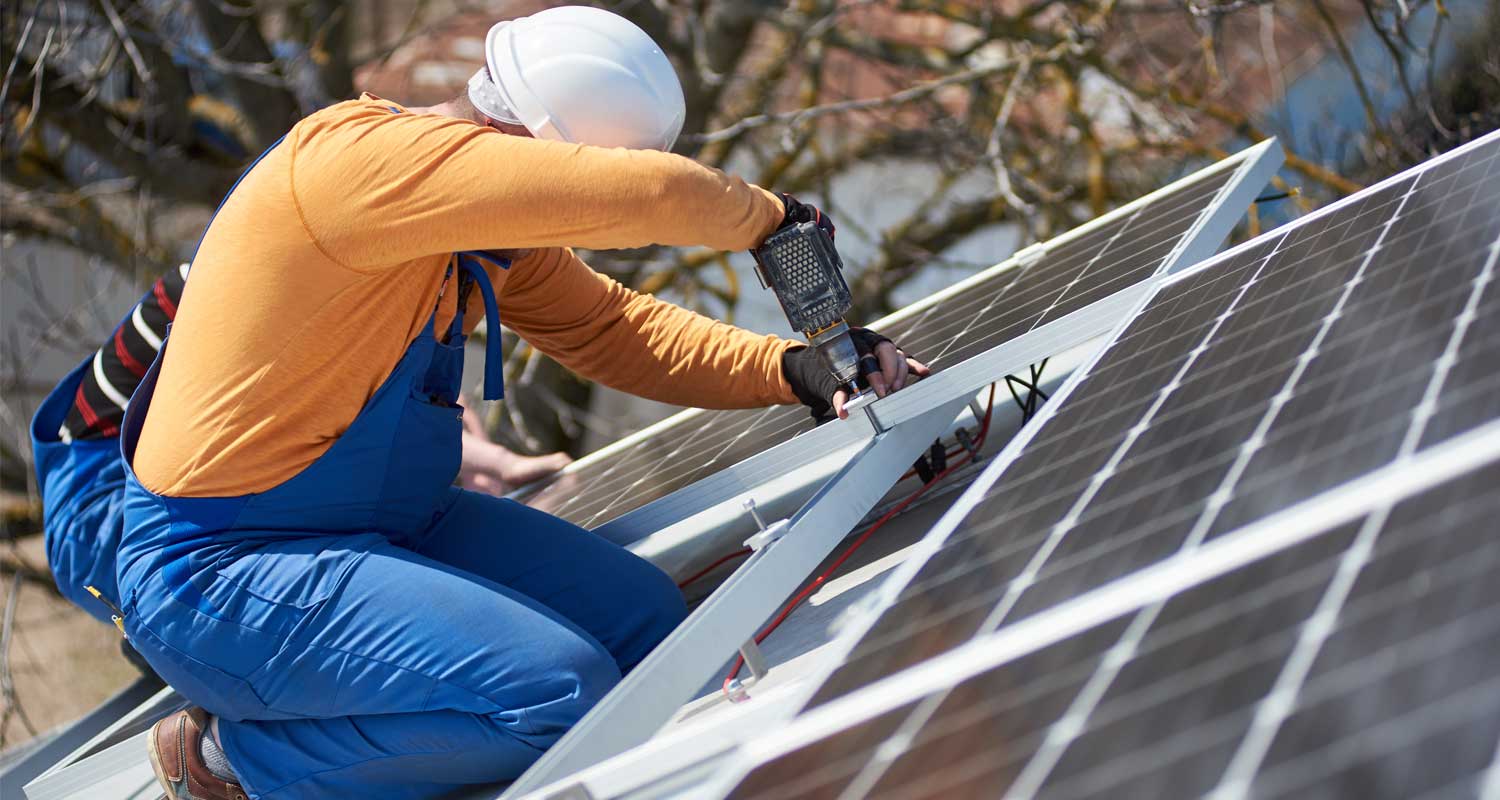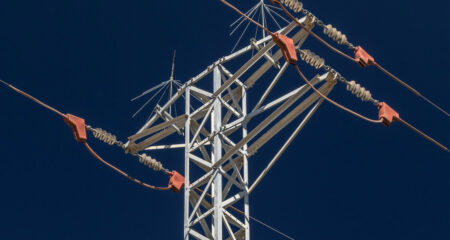
Although Ellies Holdings has been suspended from trading on the JSE – and, barring a miracle, won’t trade again – the group’s underlying businesses, and the Ellies brand, are likely to be saved.
That’s the word from CEO Shaun Prithivirajh, who spoke to TechCentral in an exclusive interview this week about how the storied South African company got itself into difficulty, and why he’s confident the brand – and jobs – can be saved.
Last month, it emerged that Ellies Electronics – the main operating subsidiary of Ellies Holdings – had received buyout offers from unnamed third parties. The business still employs about 200 people.
It was the latest plot twist in a long-running saga that recently saw Ellies Holdings applying for liquidation after failing to secure backing from its lenders for an acquisition that formed a key part of a turnaround plan.
The decision by Ellies’ lenders not to fund the acquisition of Bundu Power was the straw that broke the camel’s back, prompting the decision in January to place the company into voluntary business rescue. The Bundu deal had been key to a plan by Prithivirajh and the board to save the company, which was founded in 1979 by the late Ellie Salkow.
Ellies is a household name in South Africa, with many homes and businesses using at least one of its products, from DStv satellite dishes to surge protectors and other electrical plugs to trolley inverters and batteries used during load shedding.
Saving the Ellies brand
Now Prithivirajh has set out in detail to TechCentral what led to the decision by the company’s lenders not to support the turnaround plan, and why – despite the holding company being placed into business rescue – the brand could still live on.
Despite the decision last month by business rescue practitioner John Evans to seek the liquidation of Ellies Holdings, bidders have emerged for the assets of Ellies Electronics, the subsidiary which “contains all the cash-generating business units within the Ellies Group” and which continues trading.
“The retail distribution business will continue to supply its customers, the trade counters will remain open for business, the commercial projects division will continue to install and commission projects that are underway, and the satellite installations and solar power divisions will continue to install systems for its customers,” Prithivirajh said in a recent statement.
Read: Ellies to shut down manufacturing arm, blames TV migration delays
“The business rescue practitioner has received offers from third parties who wish to acquire the operating divisions and is hopeful that the sale of these viable operations will be concluded in the coming weeks. This not only ensures continuation of business relationships, but also provides the opportunity for a significant number of employees to be transferred to the potential acquirers,” he said.

Speaking to TechCentral this week, Prithivirajh said the decision by Ellies’ lenders not to support the acquisition of Bundu Power dealt a fatal blow to the group’s turnaround plan. The acquisition would have allowed Ellies to lessen its reliance on its satellite business, which he described as a “sunset business” in “decline”.
As more consumers shifted from satellite television to streaming entertainment delivered over high-speed fibre broadband connections from the likes of Openserve and Vumatel, the traditional satellite business had become a millstone around Ellies’ neck.
“The Bundu deal would have given us skills in the alternative energy space, which we did not have in-house. It would also have given us access to significant cash reserves,” said Prithivirajh. “The deal was part of a larger play, which included moving away from our traditional business. We were also looking to dispose of the retail distribution business because it is working-capital hungry.”
Poor stock management, especially of trolley inverters — where it was lumped with R40-million in stock it couldn’t easily offload — blew a hole in its balance sheet, leaving it in a vulnerable position, exacerbated by the decline in the legacy satellite business.
“The real sword of Damocles that has been hanging over us has been our historic debt. It was sucking about R25-million out of working capital annually with little to show for it.”
Ellies originally got into trouble when the 2007 acquisition of Megatron, an energy solutions company, saddled it with high levels of debt. That acquisition, which initially sent Ellies’ share price soaring, ended up going “pear-shaped”, Prithivirajh said. “Megatron was the catalyst where all of this starts. It was a good business, but it went wrong.”
The plan that went awry
An Eskom-led project to provide free LED light bulbs to homeowners contributed to the woes when the electricity utility declined to expand the programme, leaving Ellies with too much stock that it couldn’t offload profitably. South Africa’s long-delayed television broadcasting digital migration project also had a negative impact after government’s efforts stalled for years.
Efforts to restructure the growing debt pile were not enough to save the day. The plan had involved:
- Securing funding from lenders to buy Bundu Power;
- Disposing the retail distribution business to raise capital and reduce debt; and
- Twelve months after the Bundu deal was secured, going to shareholders to raise capital through a right offer underwritten by Ellies’ two major shareholders, Imvula Trust and Mazi Capital, aimed at getting the balance sheet repaired once and for all.
In the end, Ellies’ main lender – Prithivirajh declined to name the institution – decided not to stump up the millions needed to buy Bundu Power, deeming the restructuring plan too high risk. It would have involved recapitalising the retail distribution business, funding the Bundu Power deal and giving the group more time to repay its debts.
Without the funding, the board had a fiduciary duty to seek business rescue, Prithivirajh said. “We really needed the Bundu Power deal. Unfortunately, we couldn’t get it.”
It had been the company’s plan for years to pivot into home solar installations, and it had even launched a small solar installation business, called Ellies Solar. But the lack of working capital hamstrung its plans to expand rapidly in that market.

“To play in that space as a distributor, you need a lot of working capital,” he said. “That’s the hurdle we could not overcome.”
The plan was to develop and sell Ellies-branded inverters and batteries for the residential solar market, leveraging its household brand, and to work with qualified installers to secure a meaningful slice of the market. But without deep pockets, it couldn’t compete effectively against other, better-capitalised solar upstarts.
It also had a promising business supplying commercial energy solutions, and successfully supplied off-grid generator power to stadiums for several international rugby matches hosted in South Africa. Again, though, working capital constraints meant it couldn’t buy its own generators to expand this business, stifling its growth plans.
All Ellies Electronics businesses continue trading through business rescue, even with liquidation looming. The business rescue practitioner has been approached by “various parties with an interest in buying pieces of the Electronics business,” Prithivirajh told TechCentral. He declined to name the interested parties due to confidentiality, but said he is confident deals will be struck soon that will ultimately mean the Ellies brand will be saved.
“The brand will not go away. It does not end here. The Ellies brand will not end,” he said. The unnamed third parties are now in “advanced discussions” about buying the underlying assets, including the retail distribution business. The business rescue practitioner has until 10 May to publish a plan in this regard, meaning that by next Friday there should be news on the asset sales. Proceeds will be used to pay Ellies’ creditors.
“I still believe the brand is incredibly strong; every home has an Ellies product. But the debt we sat with wasn’t manageable,” Prithivirajh said. – © 2024 NewsCentral Media




